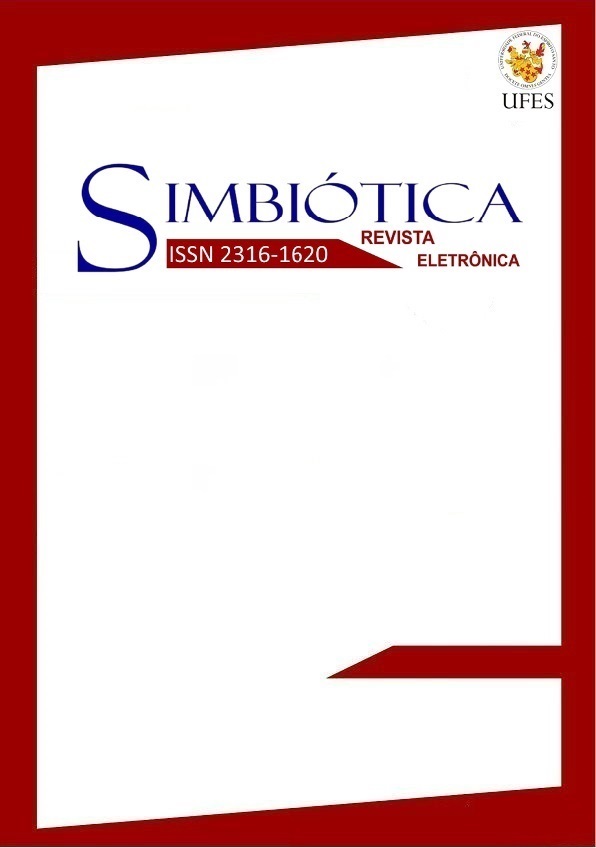Os laços sociais afetivos como ponto de inflexão e possibilidade de prevenção às práticas delituosas
DOI:
https://doi.org/10.47456/simbitica.v8i4.37353Resumen
O presente trabalho tem por objetivo analisar achados que indiquem a influência do fortalecimento de vínculos familiares, especialmente o casamento/união estável e o nascimento/convívio com filhos, para a interrupção da prática de delitos, utilizando como metodologia a realização de entrevistas semiestruturadas com egressos do sistema prisional, condenados por crimes patrimoniais ou tráfico de drogas. Valendo-se de uma perspectiva interacionista e trabalhando os conceitos de ponto de inflexão e desistência colateral de Laub e Sampson (2003), a pesquisa realizada verifica como a maior integração em sistemas sociais como a família favorece o afastamento de práticas ilícitas.
Palavras-chave: família; controle social; desistência; crime.
Abstract
The study aims to analyze findings that indicate the influence of strengthening family bonds, especially marriage / stable union and birth / living with children, to give up the practice of crimes, using semi-structured interviews with prisoners convicted of property crimes or drug trafficking as a methodology. Using an interactionist perspective and working on the concepts of point of inflection and collateral withdrawal by Laub and Sampson (2003), the research carried out verifies how the greater integration in social systems such as the family favours the removal of illicit practices
Keywords: family; social control; withdrawal; crime.
Resumen
El presente estudio tiene el objetivo analizar los informes que indican la influencia del fortalecimiento de lazos familiares, específicamente, el matrimonio / unión estable y el nacimiento / el convivir con los niños, para la renuncia a la práctica de delitos. Este trabajo utiliza como metodología entrevistas semiestructuradas de presos condenados por delitos contra la propiedad o el tráfico de drogas. En este contexto, la perspectiva inter accionista y el uso los conceptos son un punto de inflexión y retiro colateral de Laub y Sampson (2003). En ese sentido, la investigación realizada verificó cómo una gran integración entre los sistemas sociales y/o el familiar favorecen la remoción de prácticas ilícitas.
Palabras clave: famíliar; el control social; la retirada; el crime.
Descargas
Descargas
Publicado
Cómo citar
Número
Sección
Licencia
Derechos de autor 2021 Gusthavo Ribeiro Bacellar

Esta obra está bajo una licencia internacional Creative Commons Atribución-NoComercial 4.0.
Autores que publicam nesta revista concordam com os seguintes termos:
a. Autores mantém os direitos autorais e concedem à revista o direito de primeira publicação, com o trabalho simultaneamente licenciado sob a Creative Commons - Atribuição-NãoComercial 4.0 Internacional.
b. Compartilhar - copiar e distribuir o material em qualquer meio ou formato.
Adaptar - remix, transformar e construir sobre o material para qualquer finalidade, inclusive comercial.
c. Autores têm autorização para assumir contratos adicionais separadamente, para distribuição não-exclusiva da versão do trabalho publicada nesta revista (ex.: publicar em repositório institucional ou como capítulo de livro), com reconhecimento de autoria e publicação inicial nesta revista.
d. Autores têm permissão e são estimulados a publicar e distribuir seu trabalho online (ex.: em repositórios institucionais ou na sua página pessoal) a qualquer ponto antes ou durante o processo editorial, já que isso pode gerar alterações produtivas, bem como aumentar o impacto e a citação do trabalho publicado (Veja O Efeito do Acesso Livre).
Authors who publish in this journal agree to the following terms:
a. Authors retain the copyright and grant the magazine the right of first publication, with work simultaneously licensed under the CCreative Commons - Atribuição-NãoComercial 4.0 Internacional.
b. Share - copy and distribute the material in any medium or format.
Adapt - remix, transform and build on the material for any purpose, including commercial.
c. Authors are authorized to take additional contracts separately, for non-exclusive distribution of the version of the work published in this journal (eg, publish in institutional repository or as a book chapter), with acknowledgment of authorship and initial publication in this journal.
d. Authors are allowed and encouraged to publish and distribute their work online (eg.: in institutional repositories or on their personal page) at any point before or during the editorial process, as this can generate productive changes as well as increase the impact and the citation of the published work (See The Effect of Free Access).














